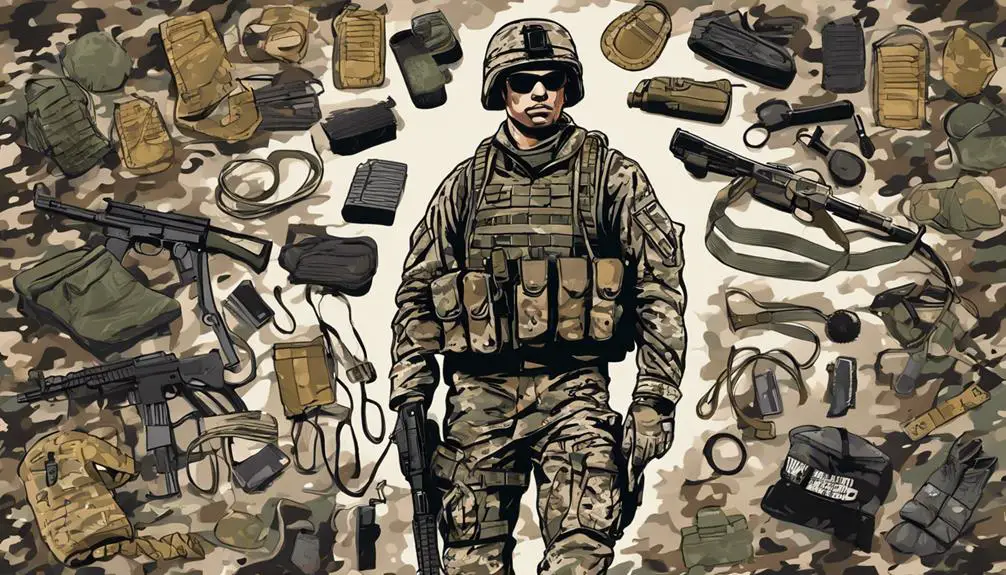You're about to uncover the intriguing world of DDR military slang, born from the need to differentiate the Nationale Volksarmee (NVA) from the Soviet military. This distinct language blended Russian, German, and other languages spoken in the DDR to reflect the NVA's values, traditions, and ideology. Russian influences dominated, with many terms borrowed to project professionalism. You'll discover how soldiers used code-switching, coping mechanisms, and English loanwords to navigate military life. As you explore this unique linguistic landscape, you'll uncover the complexities of the DDR military's identity and its lasting impact.
Origins of DDR Military Slang
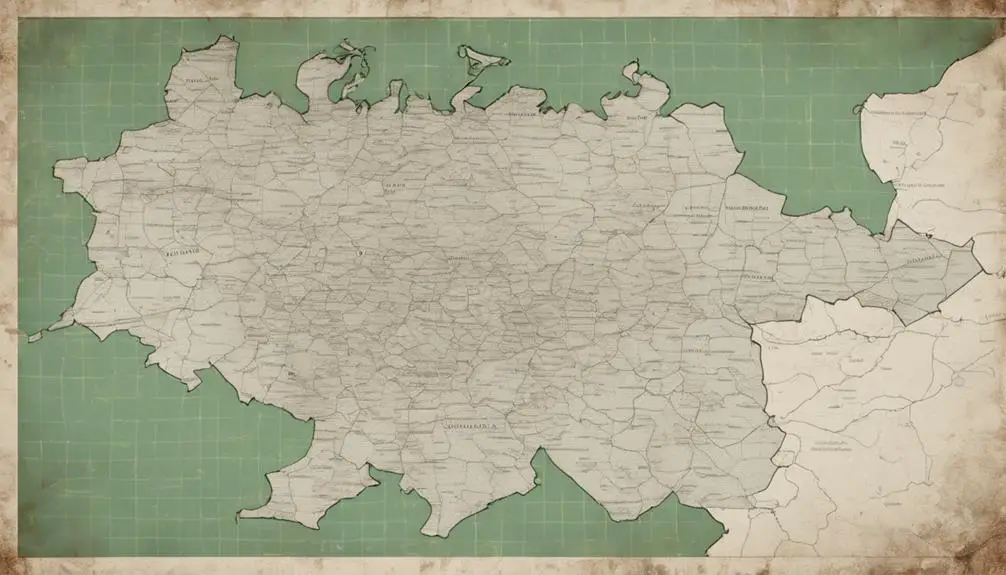
What sparked the development of DDR military slang, and how did it become an integral part of the East German military's cultural identity?
During the Cold War, the DDR's military, known as the Nationale Volksarmee (NVA), faced a unique challenge: creating a distinct identity separate from its Soviet counterpart. This led to the evolution of a unique language, DDR military slang, which became an essential part of the NVA's cultural identity.
As the DDR emerged as a socialist state, its military needed to differentiate itself from the Soviet Union's military. This led to the development of a distinct language, which was shaped by the DDR's unique history, culture, and politics. The language evolved rapidly, incorporating elements from Russian, German, and other languages spoken in the DDR.
The DDR military slang was more than just a dialect; it represented the NVA's values, traditions, and ideology. It was used to communicate efficiently, often in coded messages, and to create a sense of camaraderie among soldiers.
The slang became an integral part of the NVA's cultural identity, symbolizing the DDR's autonomy and independence during the Cold War era.
Russian Influences on Armee-Slang
As you investigate the Russian influences on Armee-Slang, you'll uncover the significant impact of Soviet roots on the DDR military's language. The Cyrillic adaptations, in particular, highlight the Soviet Union's profound influence on the NVA's cultural identity.
You'll notice that many DDR military slang terms are direct borrowings from Russian, often with minimal modifications. This linguistic borrowing reflects the close military cooperation between the Soviet Union and the DDR. The Soviet Union's military presence in the DDR played a significant role in shaping the NVA's language, with Russian becoming an integral part of the DDR military's communication.
The Russian influences on Armee-Slang also reveal the NVA's efforts to emulate the Soviet military's prestige and authority. By adopting Russian terms and phrases, the NVA sought to project a sense of professionalism and military prowess.
As you explore further into the world of DDR military slang, you'll uncover the complex dynamics between the Soviet Union and the DDR, as reflected in the language of the NVA.
Coping Mechanisms in the NVA
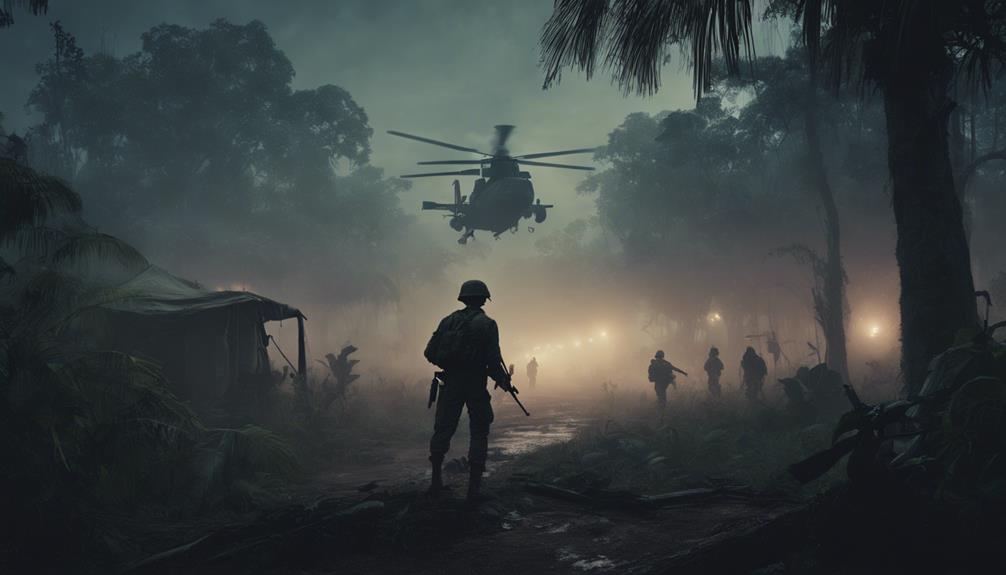
In the face of strict discipline and harsh realities, NVA soldiers developed coping mechanisms to navigate the psychological and emotional demands of military life.
You, as a soldier, needed ways to deal with the stress and pressure of serving in the National People's Army. To cope, you employed various strategies to maintain your mental well-being.
Here are three common coping mechanisms used by NVA soldiers:
- Humor therapy: You used humor to diffuse tension and make light of difficult situations, creating a mental escape from the harsh realities of military life.
- Social bonding: You formed close bonds with your comrades, creating a support network that helped you navigate the challenges of military service.
- Escape mechanisms: You developed mental escapes, such as daydreaming or fantasizing, to temporarily avoid the stress and pressure of military life.
Code-Switching in the Barracks
You depended on code-switching to maneuver the complex social dynamics within the barracks, where a single misstep in language or tone could mean social ostracism or even disciplinary action. You quickly learned to adapt your language to fit in with different groups, switching between formal and informal registers to avoid misunderstandings. This code-switching was pivotal in bridging language barriers between soldiers from different regions and backgrounds. It not only facilitated communication but also helped to establish trust and camaraderie.
Code-switching also played a significant role in identity formation within the barracks. You used specific dialects or slang to signal your affiliation with particular groups or cliques, thereby constructing and performing your identity. For instance, using certain colloquialisms or regional expressions helped to establish your regional or cultural identity.
English Loanwords in DDR Slang
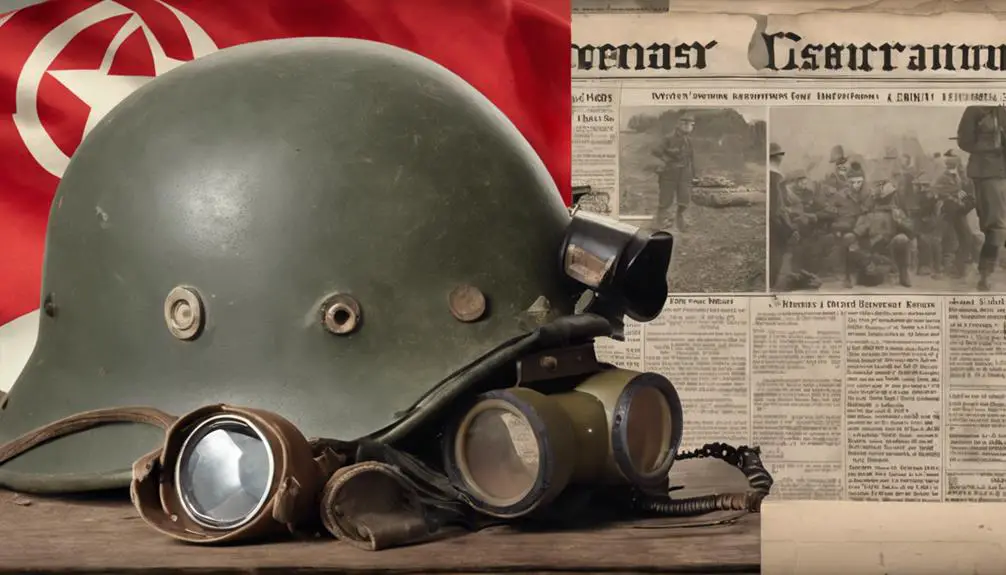
During the DDR era, American cultural influence seeped into the East German military's slang, incorporating English loanwords that reflected the soldiers' fascination with Western popular culture. You might think it's surprising, but English phrases and words became an integral part of the DDR military's everyday language. This cultural assimilation was a result of the soldiers' exposure to Western media, music, and films.
As you investigate further, you'll notice that English loanwords were used to describe modern technologies, fashion, and trends. Here are a few examples:
- Funker (from 'radio operator') referred to a soldier responsible for communication equipment.
- Dress (from 'dress') described a soldier's uniform.
- Service (from 'service') referred to a soldier's duty or task.
The incorporation of English loanwords into DDR military slang reveals the complexities of language identity during the Cold War era. It showcases how cultural exchange and assimilation can shape the language we use, even in the context of a highly regulated military environment.
As you explore the world of DDR military slang, you'll discover how language can be a powerful tool for cultural expression and identity formation.
Armee-Slang in Popular Culture
Beyond the barracks, DDR military slang seeped into East German popular culture, with filmmakers, writers, and musicians incorporating Armee-Slang into their work, often as a way to add realism and authenticity to their portrayals of military life. You may have noticed that film portrayals of East German military life often featured characters using DDR slang, making the dialogue more believable and immersive. For instance, the 1982 film 'Der Mann mit dem Objektiv' (The Man with the Objective) featured soldiers using Armee-Slang in their conversations.
In music, you'll find references to DDR military slang in songs like 'Armee der Arbeit' (Army of Labor) by the East German punk band, Schleim-Keim. The song's lyrics peppered with Armee-Slang, added to its rebellious and anti-authoritarian tone.
You'll also find Armee-Slang in literature, particularly in novels that explored the experiences of East German soldiers. By incorporating DDR military slang into their work, creatives could tap into the cultural zeitgeist, making their portrayals of military life more relatable and authentic.
Legacy of DDR Military Slang
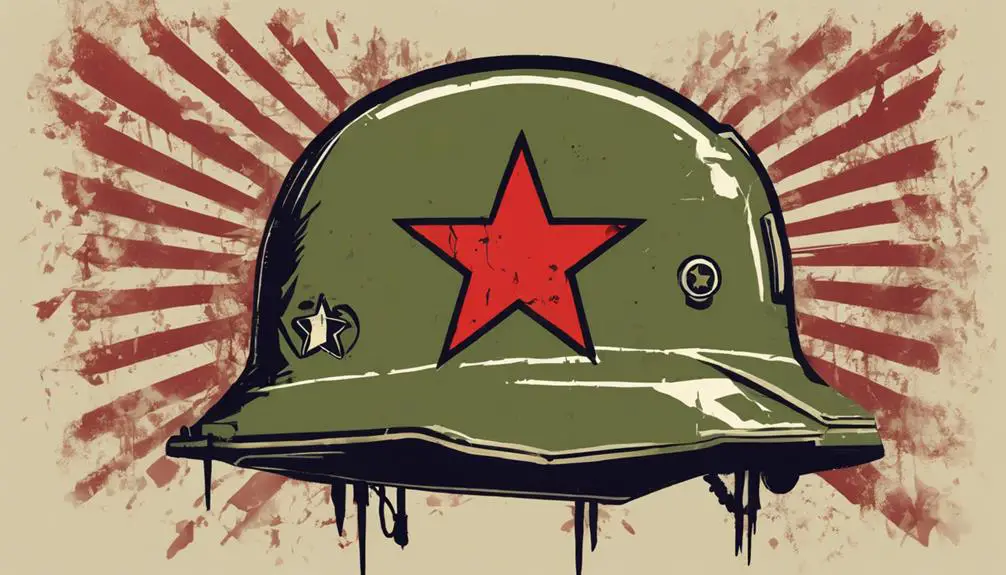
As the Berlin Wall crumbled, DDR military slang, once an integral part of East German military culture, began to fade into obscurity, leaving behind a lasting impact on the German language and popular culture. You might wonder what happened to the unique terminology that was once an integral part of the DDR military identity.
The legacy of DDR military slang can be seen in several areas:
- Linguistic Evolution: DDR slang has influenced the German language, with many words and expressions being adopted into everyday language.
- Cultural Heritage: DDR military slang has become an important part of Germany's cultural heritage, with many museums and cultural institutions preserving and showcasing its history.
- Pop Culture Inspiration: DDR military slang has inspired artists, writers, and filmmakers, who continue to draw inspiration from its unique terminology and cultural significance.
As you explore the legacy of DDR military slang, you'll discover how it continues to shape the German language and popular culture, leaving a lasting impact on the country's cultural heritage.
Frequently Asked Questions
How Did DDR Military Slang Change Over the Years?
As you explore the evolution of military slang, you'll notice significant changes over the years. During the Cold War, language evolution accelerated as military personnel adapted to new technologies and global conflicts.
You'll see how slang reflected these shifts, incorporating acronyms and jargon to convey complex ideas quickly.
As you investigate further, you'll discover how military slang not only reflected but also influenced broader language trends, mirroring the dynamic nature of warfare and global politics.
Was DDR Military Slang Used Outside of the Military?
You might wonder if military slang ever escapes the barracks and influences everyday language.
The answer is yes, it does! Military slang often seeps into civilian vocabulary, having a significant cultural impact.
You'll find that certain phrases or words, born in the military, become part of civilian adoption, shaping the way people communicate.
This linguistic crossover is a tribute to the military's influence on popular culture.
Are There Any Female-Specific DDR Military Slang Terms?
As you step into the world of military jargon, you'll discover a fascinating domain where linguistics meets gender dynamics.
When it comes to female-specific terms, you'll find that they're scarce, but telling. In the DDR military, Female Comrades were often referred to as 'Kameradinnen,' a term that acknowledges their equal status.
However, gender roles played a significant part in shaping the slang, with women often being relegated to traditional, nurturing roles.
Despite this, female soldiers carved out their own space, and their slang reflects this quiet resistance.
Can DDR Military Slang Be Used in Formal Writing?
When writing in a formal tone, especially in a professional context, you should avoid using slang or colloquialisms. Formal writing demands a level of sophistication and clarity, which slang terms can compromise.
While DDR military slang might be useful in casual conversations, it's not suitable for formal writing. You should opt for standard, universally understood terminology to convey your message effectively and maintain a professional image.
Are DDR Military Slang Terms Still Used Today?
It's worth considering that around 80% of military veterans use slang in their daily conversations. This leads to the query: are slang terms still used today? Yes, they are.
In fact, their influence persists in popular culture, and their cultural relevance remains strong. Many modern expressions, like 'opsec' (operational security), have originated from military slang, demonstrating the lasting impact of these terms on our language.
Conclusion
As you reflect on the DDR military slang, it's like holding a faded photograph – the edges worn, the colors muted, but the memories still vivid.
The language of the NVA, forged in the crucible of war and socialism, remains a tribute to the resourcefulness of soldiers coping with the harsh realities of military life.
Though the DDR is no more, its slang persists, a linguistic artifact of a bygone era, whispering secrets of the past to those willing to listen.

